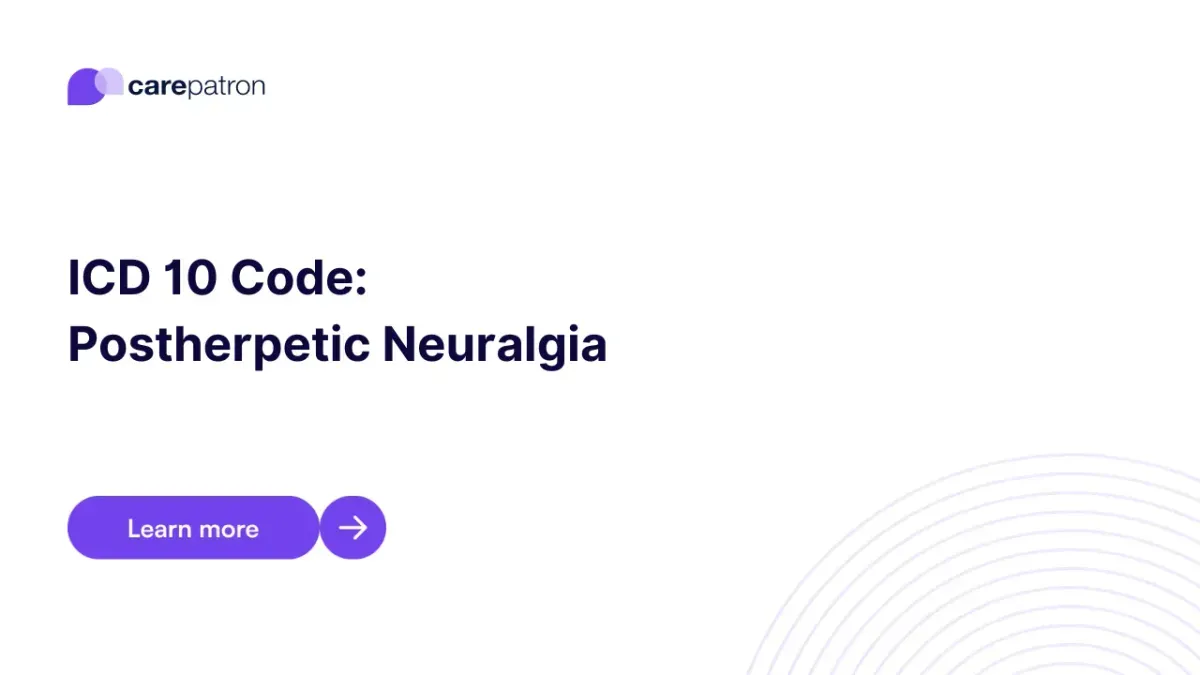
Postherpetic Neuralgia ICD-10-CM Codes
Explore ICD-10-CM codes for postherpetic neuralgia, a nerve pain complication of shingles, including types, diagnosis, and billing details for PHN cases.
Use Code
Commonly asked questions
The ICD-10 code for postherpetic neuralgia depends on the type and location of nerve involvement. Common codes include B02.22 (postherpetic trigeminal neuralgia), B02.23 (postherpetic polyneuropathy), B02.21 (postherpetic geniculate ganglionitis), and B02.29 (other postherpetic nervous system involvement).
Postherpetic neuralgia is a complication of herpes zoster (shingles) that causes persistent nerve pain even after the shingles rash has healed. It occurs due to nerve damage caused by the varicella zoster virus reactivating in the body.
Postherpetic neuralgia is a specific type of neuropathy that develops after a shingles infection. While both involve nerve pain, PHN is directly linked to the nerve damage caused by the varicella zoster virus.
EHR and practice management software
Get started for free
*No credit card required
Free
$0/usd
Unlimited clients
Telehealth
1GB of storage
Client portal text
Automated billing and online payments
